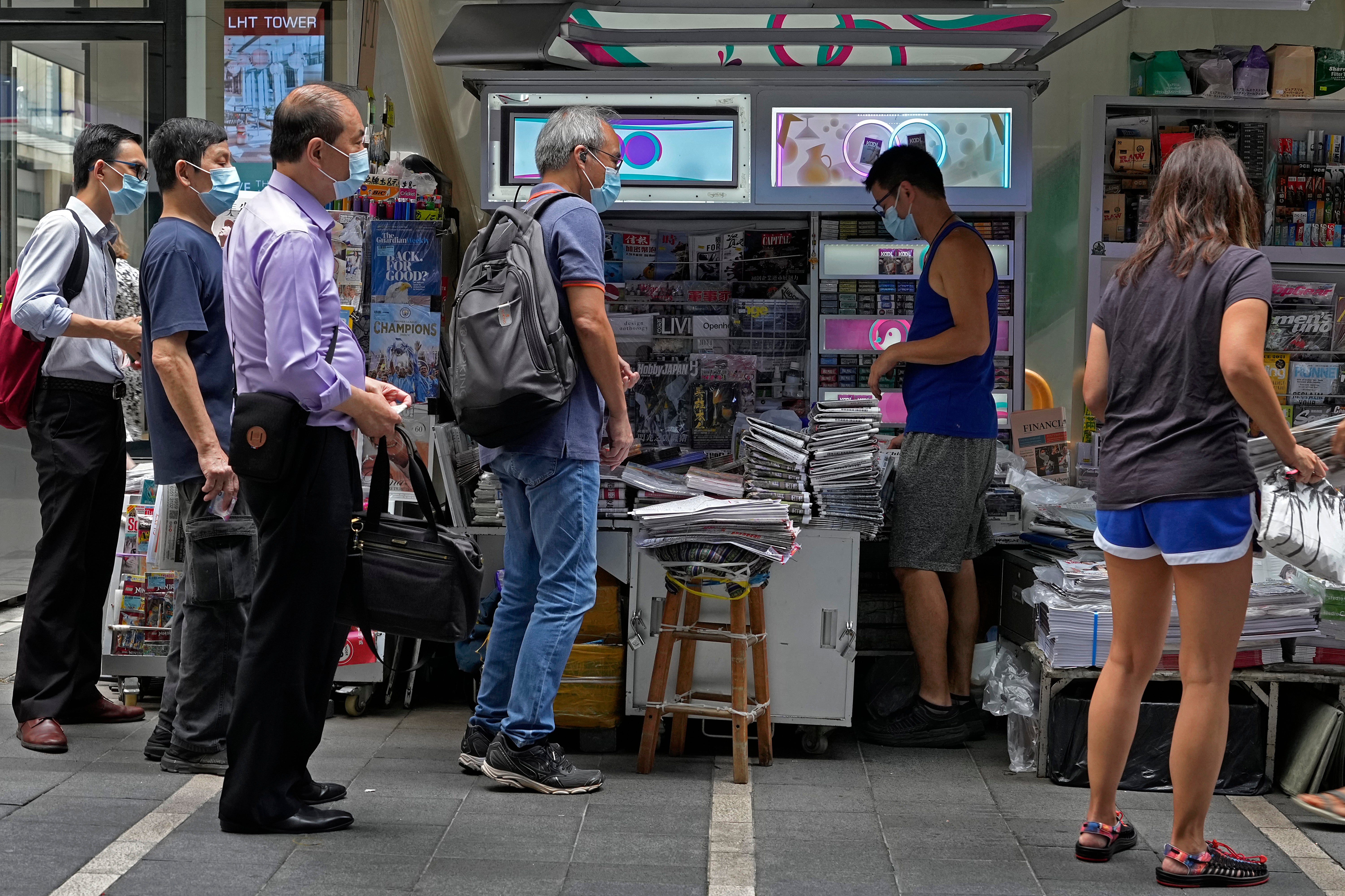We must stand with Hong Kong’s embattled journalists
With newspaper editors following democratically-elected legislators into the dock, freedoms in Hong Kong are being unpicked piece by piece


First, they came for the protestors, then they came for the elected democrats, and now it is the turn of journalists. Step by step, the long arm of the national security law is suffocating free expression in Hong Kong.
Having rounded up and imprisoned a number of opposition politicians under “subversion” charges, this week the Chinese Communist Party turned its attention to Hong Kong’s free media – sending 500 national security officers to arrest the editor-in-chief and four other directors from the pro-democracy newspaper Apple Daily, on the basis that they have “colluded with foreign political forces” by publishing articles critical of the state.
This is another milestone moment in a dark year for Hong Kong. However, it is not to say that the pro-democracy press has been immune from political pressure in the past. Jimmy Lai, the owner of Apple Daily, is already facing a National Security Law charge of his own, and the newspaper has been under an advertising embargo from most major Hong Kong businesses for more than a decade. But journalists have never been targeted under the National Security Law and their words have never before been criminalised in this way.
The contrast with events two years ago could not be starker. On 16 June 2019, up to 2 million people marched the streets of Hong Kong. In a city of 7.5 million, that is extraordinary. Slogans such as “Liberate Hong Kong, revolution of our times” and “Fight for freedom, stand with Hong Kong” rang from the rooftops and alleyways. The overwhelming cry of Hong Kong’s people was that they would stand up for their freedoms.
It was a message of defiance which Beijing found unacceptable and catalysed the current purge. China’s national security law has transformed Hong Kong by giving the government a piece of legislation which overrides all locally enshrined human rights safeguards and is so broadly defined that it can be applied to pretty much anyone in opposition.
When the law was introduced by Carrie Lam, she claimed that it would only target a “very small minority” of extreme lawbreakers. With newspaper editors following democratically-elected legislators into the dock, the mendacity of her claim is now evident. The legislation is being used to propel the city to full-blown totalitarianism.
Weeks before the protest movement broke out, I visited Hong Kong. Half of the 30 or so people I spoke with on that trip are now jailed. Most of them were either activists or legislators at the time. Their backgrounds? Lawyers, pilots, accountants, students. Idealists who just wanted to live in a free, just society.
Many of them are being denied bail as they await trial, and some have even been held in solitary confinement.
Each of those hundreds of imprisoned protesters are individuals – some of whom I am privileged to call friends – whose future looks bleak. With many of the national security law cases being escalated to the High Court, some of Hong Kong’s leading democrats now face a minimum of 10 years in jail. Their crimes? Writing news editorials or standing in primary elections. It is appallingly unjust.
Why should the suffocation of Hong Kong’s freedoms matter to us? Three reasons. First, because the UK and China signed a treaty in international law to protect Hong Kong’s freedoms. The British government has stated that Beijing is in permanent breach of the handover treaty. We have a duty to make sure that no political prisoner is forgotten, and should look to take further steps to show that there are consequences for this treaty breach, including the use of Magnitsky sanctions.
Equally importantly, every step to suffocate Hong Kong’s freedoms will convince British National Overseas passport holders – who now have the right to live in the UK – that their future might not be in Hong Kong. The government must put proper resources and preparation into the welcome package in anticipation of new arrivals.
Finally, as we watch our friends in Hong Kong see their freedoms unpicked piece by piece, it is a reminder of the value of what we take for granted.
In a statement earlier this week, Apple Daily’s journalists stood defiant: “We will continue to persist as Hongkongers and live up to the expectations so that we have no regrets to our readers and the times we are in. Though we are facing a sweeping clampdown on our publication, the staff of Apple Daily will hold fast to our duties faithfully and press on till the end to see the arrival of dawn.” We should stand with them.
Johnny Patterson is the policy director of Hong Kong Watch
Join our commenting forum
Join thought-provoking conversations, follow other Independent readers and see their replies
Comments
Bookmark popover
Removed from bookmarks